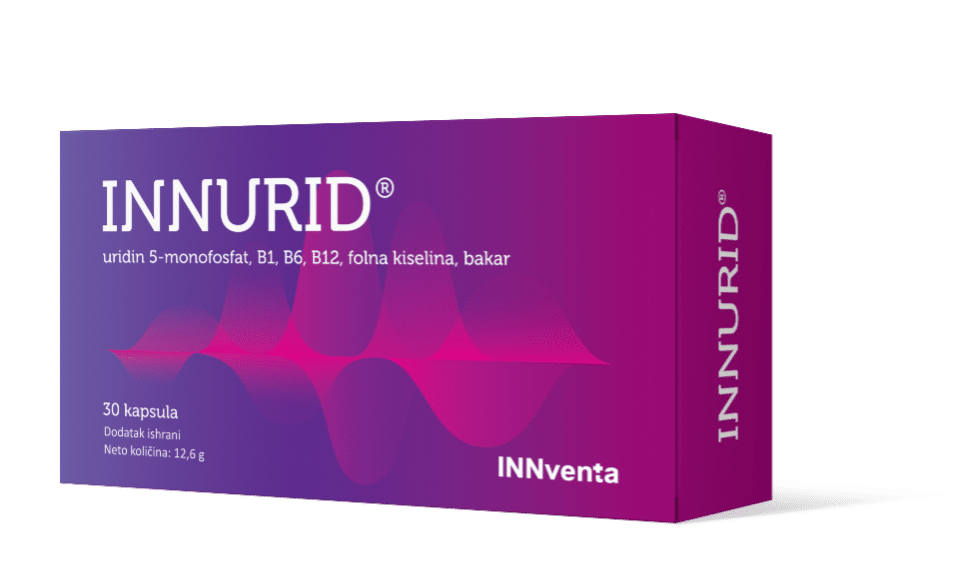
INNURID®

INNURID® is a dietary supplement that contains uridine-5-monophosphate, B complex vitamins (B1, B6, B12, folic acid) and copper, which contribute to normal functioning of the nervous system, normal psychological function and reducing fatigue and exhaustion.
Thanks to specific formulation with uridine-5-monophosphate, INNURID® in diseases and injuries of the peripheral nervous system, reduces pain, accelerates recovery, protects the nervous system and improves quality of life.
In which conditions is INNURID® recommended?
- Damage to the nerve roots of the cervical, shoulder and lumbar parts of the spinal column
- Weakened function of peripheral nerve fibres due to other diseases (diabetes, infections, lack of vitamins, trauma, etc.)
- After operations and medical procedures
- In case of injuries to the nervous system
Why INNURID®?
- Stimulates the regeneration of damaged nerves
- Reduces pain intensity
- Contributes to reducing the dose of analgesic therapy
- Speeds up recovery after injury or medical procedure
- Protects the nervous system and improves the quality of life
- Safe and comfortable application, once a day

What does INNURID® contain?
Active ingredients: | 1 capsule (daily dose) |
|---|---|
Uridine-5-monophosphate | 50 mg |
Vitamin B1 (thiamine-hydrochloride) | 2 mg |
Vitamin B6 (pyridoxine-hydrochloride) | 3 mg |
Vitamin B12 (cyanocobalamin) | 10 μg |
Copper (copper (II)-gluconate) | 0,16 mg |
Folic acid
(calcium-L-methyltetrahydrofolate) | 400 μg |
Method of use
Adults: 1 capsule a day.
Notes: Dietary supplements cannot be used as a substitute for a varied diet. It is important to follow a balanced and varied diet and a healthy lifestyle.
Warnings: The recommended daily dose must not be exceeded. The product is not intended for persons hypersensitive to any ingredient of the product, people under 18 years old, pregnant and lactating women.
Presentation: 30 capsules.